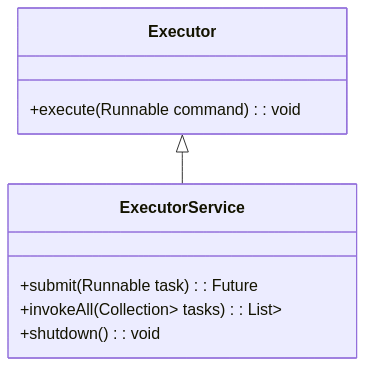Java's concurrency capabilities have evolved significantly over the years, and the Executor framework stands as a testament to this evolution. Introduced in Java 1.5, this framework brought about a paradigm shift in how we handle and manage threads in Java applications. Let's delve deep into the intricacies of the Executor, ExecutorService, and Executors classes, and understand their significance in the world of Java concurrency.

The Need for Thread Pools
Imagine a bustling coffee shop during the morning rush hour. Instead of hiring a new barista for every customer that walks in, the shop maintains a team of baristas who can serve multiple customers. This is efficient and ensures that resources (in this case, baristas) are used optimally.
Similarly, in the realm of Java applications, spawning a new thread for every task is resource-intensive and can lead to system bottlenecks. Thread pools, akin to our team of baristas, offer a solution. They maintain a pool of worker threads, ready to take on tasks as and when they arrive.
Executor: The Core Interface
The Executor interface is the cornerstone of the Executor framework. It provides a higher-level replacement for the traditional way of managing threads in Java. Instead of juggling with the intricacies of thread creation and management, developers can now focus on executing tasks asynchronously.
public interface Executor {
void execute(Runnable command);
}The execute method accepts a Runnable task and executes it asynchronously. The beauty of this interface lies in its simplicity and abstraction. It decouples task submission from the details of how each task will be executed.
ExecutorService: Beyond Basic Execution
While the Executor interface is powerful, there's room for enhancement. Enter ExecutorService, an extended version of the Executor. It offers advanced features like task termination, task submission with Future results, and more.
The submit method is particularly noteworthy. Unlike execute, which is fire-and-forget, submit returns a Future object. This Future can be used to retrieve results, check task completion, and even cancel tasks.
Executors: Utility at its Best
Executors is a utility class that provides factory methods for creating various types of thread pools. Whether you need a single-threaded executor, a fixed thread pool, or a cached thread pool, Executors has got you covered.
ExecutorService singleThreadExecutor = Executors.newSingleThreadExecutor();
ExecutorService fixedThreadPool = Executors.newFixedThreadPool(10);
ExecutorService cachedThreadPool = Executors.newCachedThreadPool();In Conclusion
Java's Executor framework is a testament to the language's commitment to simplifying concurrency. By abstracting away the complexities of thread management, it allows developers to focus on what truly matters: building robust and scalable applications.


